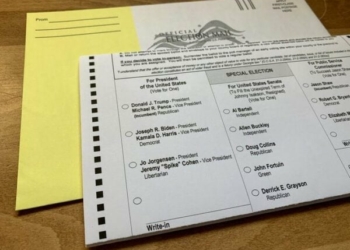
Thousands of schools are facing disruption as teachers strike over pay.
Parents may need to take time off work, or arrange childcare, if schools close.
When are NEU teachers striking?
More than 100,000 teachers in 23,000 schools could walk out across seven strike days, according to the National Education Union (NEU):
- 1 February: All schools in England and Wales
- 14 February: All schools in Wales
- 28 February: North and north-west England, Yorkshire and Humber
- 1 March: East Midlands, West Midlands, and the NEU’s eastern region
- 2 March: South-east and south-west England, and London
- 15 and 16 March: All schools in England and Wales
NEU teachers in sixth-form colleges in England – who are already striking – will also walk out.
When are the NAHT, EIS and other unions striking?
The Educational Institute of Scotland (EIS) and two other unions will walk out on 28 February and 1 March.
The EIS will hold 20 further strike days between 13 March and 21 April.
Will my child’s school close?
The decision is made by head teachers. Teachers don’t have to say if they are striking in advance, and there are no rules about when parents must be told about closures.
Some parents may only be told about a closure on the morning itself, once heads know which staff are available.
There are no minimum staffing rules, and heads can use agency staff and volunteers. They do not have to stick to the curriculum.
As in England, head teachers decide whether to close.
The Welsh government says parents should ideally get a week’s notice, but individual schools will decide how best to minimise the impact of the strikes.
WATCH: What do the teachers’ strikes in England and Wales mean for parents?
Almost all primary and secondary schools have closed on strike days. Local councils make the decision.
Can I get time off work?
Your employer must not refuse a reasonable request, but you may not be paid.
Alternatively, you may be able to take annual leave or unpaid parental leave.
Will strikes affect breakfast clubs, after-school clubs and pre-schools?
Breakfast and after-school clubs and pre-schools may be open, even if the main school closes.
Privately-run clubs might not operate, so check.
What about vulnerable pupils and key workers’ children?
Wales’ education minister says head teachers are doing “whatever they can” to support these groups.
Will exams be cancelled?
All schools and colleges should have contingency plans in place to limit disruption.
They should prioritise exams and other formal assessments on strike days, even if the school is closed to other pupils.
Students will be told if there is any change to the exam or venue.
What happens to children on free school meals?
This might involve providing food parcels.
In Scotland, some families were given money to cover food costs, while others were offered a packed lunch.
Members of the EIS union demonstrating in Edinburgh
What are teachers’ pay demands?
Most state-school teachers in England and Wales had a 5% rise in 2022. In Northern Ireland many teachers were offered 3.2% for 2021/22 and 2022/23. In Scotland, teachers have rejected both a 5% increase and a more recent offer of up to 6.85%.
Unions say inflation means the pay increases are really cuts. They want schools to get extra money to ensure pay rises do not come from existing budgets.
Education Secretary Gillian Keegan says the government has already agreed to provide an extra £2bn in school funding, “which will take real-terms spending on schools to its highest level in history”.
How much do teachers get paid?
The starting salary for teachers in England is due to rise to £30,000 a year by September 2023.
State school classroom teachers in England were paid an average of £38,982 in the 2021/22 school year. This compares with £39,009 in Wales and £40,026 in Scotland. Northern Ireland did not provide a figure.
The average head teacher’s salary in England for the same period was £74,095, and £57,117 for other senior leaders.
Experts in England advise the government about teacher pay, based on factors including vacancies and subject shortages.
As with all public spending, money allocated in England determines the funding awarded to Scotland, Wales and Northern Ireland.
Employers also contribute 23.68% to teacher pensions, which the education secretary called “very generous”. Nurses, by comparison, receive 14.38% in employer contributions.
Please include a contact number if you are willing to speak to a BBC journalist. You can also get in touch in the following ways:
If you are reading this page and can’t see the form you will need to visit the mobile version of the BBC website to submit your question or comment or you can email us at HaveYourSay@bbc.co.uk. Please include your name, age and location with any submission.












